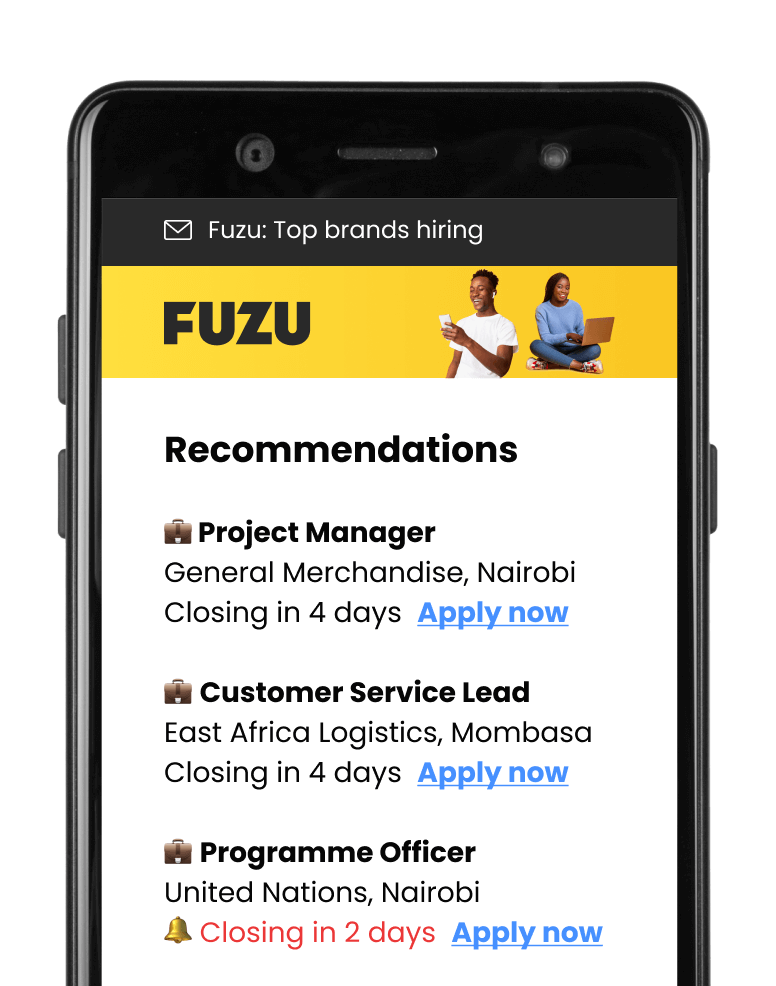Published
Last 1 week
Last 30 days
Latest 24 hours
Published
Profession
Industry
Seniority
4
jobs
StarTimes Media (Kenya) Co. Ltd
Kwale, Kenya
Equity Afia
Kwale, Kenya
EarthLungs Reforestation Foundation
Kwale, Kenya
EarthLungs Reforestation Foundation
Kwale, Kenya
EarthLungs Reforestation Foundation
CLOSEDKwale, Kenya

Get personalised job alerts directly to your inbox!
EarthLungs Reforestation Foundation
CLOSEDKwale, Kenya
Closing: Jul 28, 2024
1 day remainingPublished: Jul 22, 2024 (5 days ago)
Education:

Work experience:

Language skills:

Contract Type:

Sign up to view job details.
The Solar Technical Sales Representative will be responsible for system installation, servicing, and maintenance teams of Solar PV and energy storage systems. The successful candidates should have a very keen understanding and implementation of structural and electrical engineering concepts.
Requirements
You might have an added advantage if you have a:
The Solar Technical Sales Representative will be responsible for system installation, servicing, and maintenance teams of Solar PV and energy storage systems. The successful candidates should have a very keen understanding and implementation of structural and electrical engineering concepts.
Requirements
You might have an added advantage if you have a:

Applications submitted via Fuzu have 32% higher chance of getting shortlisted.